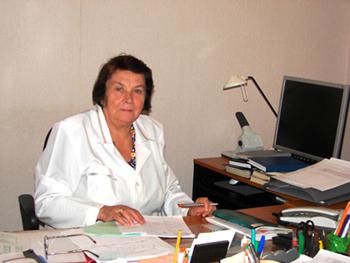St. Petersburg is one of the largest cities in Russia. Since ancient times, it has concentrated many public organizations that are in demand throughout the country. The medical service of St. Petersburg is no exception. One of the first medical institutions in Russia, engaged not only in medical, but also in scientific work, are the institutions of the Northern capital. A medical university in this city is also considered one of the most prestigious. Currently, St. Petersburg has many wonderful hospitals and clinics. Among them are specialized medical facilities. An example is the MHZ on Tobolskaya Street. This institution has helped many couples to bear healthy babies thanks to timely diagnosis and adequate therapy.
What does the MHC on Tobolskaya Street
This medical institution has been operating for over 40 years. A lot of work has been done during this time. The genetic center for the most part deals with family planning. Pregnant women rarely come there on their own. Most often they are sent from the district clinic. This happens if any abnormalities are found in the tests when donating blood for genetic screening. In this case, the doctors of the MHC explain in detail to the family about the risk of genetic or chromosomal pathology, treatment options, and also conduct more detailed studies. Most women come to this medical institution with an unspecified diagnosis, so doctors need to first reassure their patients and direct their thoughts in a positive direction. The MHC on Tobolskaya Street is closely interconnected with polyclinics and
maternity hospitals of the city, it conducts not only medical work, but also statistics on genetic and chromosomal diseases.
The structure of the medical institution
The genetic center includes several departments, each of which carries out continuous work. The structure of the medical institution has diagnostic and consultation rooms. All branches of the MHC are equipped with modern equipment and have qualified specialists. The structure of the medical genetic center includes the following components:
- Organizational and methodological office.
- Patient Advice Unit.
- Biochemical laboratory.
- City center "Pregnancy and diabetes."
- Cytogenetic laboratory.
- Department of perinatal and ultrasound diagnostics.
Advisory Office
The Genetics Medical and Genetic Center on Tobolskaya Street daily receives patients from all areas of St. Petersburg. His most frequent patients are women in position. Pregnant women get there from outpatient clinics at the place of residence if they have any suspected pathology. At the first genetic screening , blood sampling is performed to determine the amount of alpha-fetoprotein, which is an indicative hormone. Changing its content does not always indicate chromosomal diseases or fetal growth retardation, but it requires special research methods that are not done in ordinary clinics. At later stages of pregnancy, when an ultrasound scan reveals the presence of congenital malformations and abnormalities, some women come to the MHC on their own for a more accurate diagnosis. If such a diagnosis was made in the district dispensary, then the patients are also referred to the medical center for advice and treatment. The qualified MGC geneticists on Tobolskaya Street explain in detail and calmly to the women why they were sent there and what needs to be done to confirm or refute the diagnosis.

What is the work of laboratories
The City Medical Genetics Center is primarily a diagnostic institution. The responsibilities of the MHC include conducting various laboratory and instrumental research methods. The biochemical diagnostic cabinet is conducting screening in the first trimester of pregnancy, during the neonatal period and in children of the first year of life. Most often, prenatal diagnostics are performed to detect Down's disease, Patau and Edwards syndrome. Newborns are subject to mass genetic screening to rule out hypothyroidism, phenylketonuria, cystic fibrosis, hyperplasia of the adrenal cortex and galactosemia. The cytogenetic laboratory is engaged in the study of the fetal karyotype, as well as chromosome analysis in childhood and adulthood.
Outpatient Center for Diabetes and Pregnancy
This department of the MHC deals with family planning for women with high glucose levels. At present, diabetes is not a sentence, and with proper monitoring by a specialist, patients can tolerate a healthy baby. The outpatient center is engaged in the management of pregnancy in these women, the treatment of gynecological pathologies and assistance in the selection of contraceptive drugs after childbirth. Experienced doctors restore self-confidence to patients. Family planning assistance is provided for all types of diabetes.
Patient reviews on the work of the MHC
The Medical Genetic Research Center in St. Petersburg is one of the most sought after institutions dealing with issues of prenatal diagnosis. Reviews about the medical institution are mostly positive. Patients are satisfied with the attentive attitude of doctors and the availability of the latest equipment, which allows to accurately determine the presence or absence of a pathological condition.